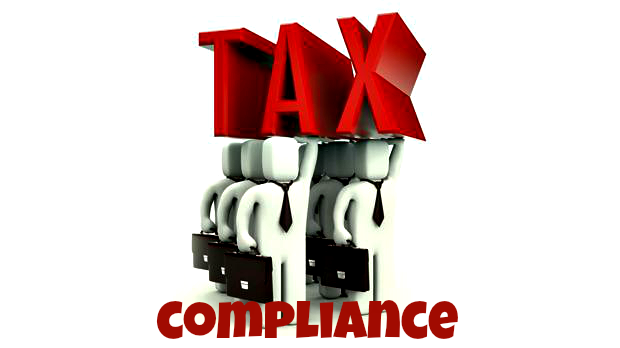Issues Affecting Tax Compliance by Companies

Complaints regarding multiple taxes have been ongoing for years in the country. From micro, small and medium enterprises to large corporate organisations, the complexity of tax information and stringent requirements for remittances make compliance difficult.
Research has shown that Africans and indeed Nigerians, have aversion to tax payment due to lack of infrastructural development that they expect from the government.
It has been observed that many companies take advantage of the lapses in the country’s tax system to either underpay or evade payment of their taxes.
In particular, a survey by PricewaterhouseCooper, shows that the operation of WHT in the Nigerian tax regime has various flaws and irregularities leading to aversion from taxpayers.
With the states and federal tax authorities exploring various means to improve revenue generation, the report says it hopes changes in the WHT legislation, practice and regime and all ambiguities will be resolved sooner rather than later.
The PwC report titled, ‘Flaws of the Withholding Tax System in Nigeria,’ adds that proper restructuring of the WHT mechanism will encourage voluntary tax compliance and increase the tax collection capacity of the regulators.
Different rates
The lack of unified rates to be paid by service providers is another cause of confusion. The report says that the WHT rates ranges from 2.5 per cent to 10 per cent.
“For instance, while rental arrangements are subject to WHT at the rate of 10 per cent, contracts for services attract a five per cent rate of withholding tax. There should be a clear distinction between contracts structured as rental arrangements from contracts of/for service,” it says.
According to the report, an example where a car hire company provides cars and drivers to a customer for a period of time as a means of transportation, the WHT rate should be different from the mere hire of a car (rental).
Delayed withholding credit notes
Basically, the PwC report says that both federal and state tax authorities issue WHT credit notes upon remittance of WHT.

It adds that these credit notes are issued to the customer who deducted and remitted the WHT for the benefit of its suppliers (the beneficiaries), to settle the future income tax liabilities of the beneficiary.
However, it argues that the practice is not in line with the law because the credit notes are delayed, discouraging service providers from complying.
The report adds, “It takes anywhere between two months to a few years from the remittance date before the tax authorities issue credit notes to beneficiaries especially for foreign currency transactions. This approach taken by the tax authorities of issuing credit notes is inefficient.
“If the reason for introducing the current system instead of the system provided by the law is to combat fraudulent claims, it seems to serve another purpose of making it difficult for taxpayers to get benefit for their WHT.”
In comparison with other countries, it says the accounts of beneficiaries are instantly credited when a payment of tax against the beneficiary’s unique tax identity number once WHT is remitted.
Non-refunded excess WHT
In instances where the WHT remitted exceeds the income tax liability, it becomes almost impossible to get a refund from the agency.
The report says, “Taxpayers are also permitted by law to recover excess WHT where the amount of tax deducted from their income exceeds their income tax liability. So if an entity has WHT credit of say N10m, and income tax liability of N7m, the entity is permitted by law to recoup N3m in cash from the revenue authority.
“However, the process of refund is not only rigorous but almost impossible in practice. Taxpayers are subjected to intensive audits and even when the claims are certified, refunds are rarely granted. As a matter of fact, Arsenal has a higher chance of winning the champions league than a taxpayer obtaining WHT refund.”
According to the report, this lack of structure leads to trapped excess credits for businesses with low-profit margin.
Sometimes, it says companies are compelled to carry forward WHT credits with no chance of a refund, therefore discouraging future voluntary compliance.
Inconsistent information in circulars
The Federal Inland Revenue Service has over the years, released various information circulars relating to WHT. While these documents are meant to provide clarity on issues, this has not been the case because some of the positions in the circulars are not consistent with the provisions of the law.
The PwC report explains, “One of the grey areas in the WHT Regulation is the concept of ‘sales in the ordinary course of business’ which are not subject to WHT. The regulation does not define ‘sale in the ordinary course of businesses’. The FIRS tried to clarify the meaning of the phrase in some of its circulars, but created more confusion in the process.”
According to the report, in practice, the various tax officers ignore this exemption and subjects all transactions to WHT apart from so called “across the counter” transactions, saying that the phrase is introduced by the FIRS and is not mentioned in any tax law.
To address this, it suggests that WHT should be limited to transactions specifically stated in the Acts and Regulations while those not mentioned should be excluded to the extent that the transactions fall within the suppliers’ ordinary business.
Source: Punchng.com

Leave a Reply